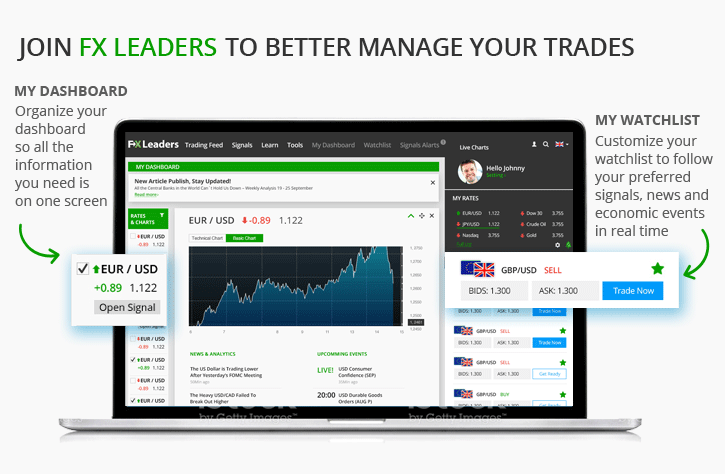6 Best Financial and Forex Regulators
Last Update: June 26th, 2024
This is a comprehensive guide on Financial and Forex Regulators. We have researched information regarding the forex market and regulatory overseeing forex trading to provide a comprehensive guide for traders.
In this in-depth guide, you’ll learn:
- The Top Regulatory Bodies in Forex – a List
- Forex Regulations – an Overview
- SEC, CFTC, FCA, ESMA, ASIC, and FSA Regulated Forex Brokers
- How to Check if a Forex Broker is Regulated
- Is Forex Trading Regulated?
- Who are the Major Financial and Forex Regulators Worldwide?
and much, MUCH more!
| Broker | Review | Regulators | Min Deposit | Website | |
|---|---|---|---|---|---|
| 🥇 |  | Read Review | ASIC, FSA, CBI, BVI, FSCA, FRSA, CySEC, ISA, JFSA | USD 100 | Visit Broker >> |
| 🥈 |  | Read Review | FMA, FSA | USD 50 | Visit Broker >> |
| 🥉 |  | Read Review | FSCA, CySEC, DFSA, FSA, CMA | USD 0 | Visit Broker >> |
| 4 |  | Read Review | ASIC, BaFin, CMA, CySEC, DFSA, FCA, SCB | USD 200 | Visit Broker >> |
| 5 |  | Read Review | FCA, CySEC, FSCA, SCB | USD 100 | Visit Broker >> |
| 6 |  | Read Review | CySEC, MISA, FSCA | USD 25 | Visit Broker >> |
| 7 |  | Read Review | CySEC, FCA, FSA, FSCA, Labuan FSA | USD 100 | Visit Broker >> |
| 8 |  | Read Review | CBCS, CySEC, FCA, FSA, FSC, FSCA, CMA | USD 10 | Visit Broker >> |
| 9 |  | Read Review | ASIC, CySEC, FSCA, CMA | USD 100 | Visit Broker >> |
| 10 |  | Read Review | IFSC, FSCA, ASIC, CySEC | USD 1 | Visit Broker >> |

6 Best Financial and Forex Regulators – a Comparison
| 🔎 Forex Regulator | ↪️ Forex Regulator (abbreviation) | 🌎 Country of Regulation | 🏆 Best Regulated Forex Broker | 🚀 Open an Account |
| 🥇 Securities and Exchange Commission | SEC | United States | AvaTrade | 👉 Click Here |
| 🥈 Commodity Futures Trading Commission | CFTC | United States | XM | 👉 Click Here |
| 🥉 Financial Conduct Authority | FCA | United Kingdom | HF Markets | 👉 Click Here |
| 🏅 European Securities and Markets Authority | ESMA | European Union | OctaFX | 👉 Click Here |
| 🎖️ Australian Securities and Investments Commission | ASIC | Australia | Axi | 👉 Click Here |
| 🥇 Financial Services Agency | FSA | Japan | Pepperstone | 👉 Click Here |
6 Best Financial and Forex Regulators (2024)
- ☑️ Securities and Exchange Commission (SEC) – Overall, the Best Forex Regulator
- ☑️ Commodity Futures Trading Commission (CFTC) – Leading Regulator of Futures and Options Markets in the U.S.
- ☑️ Financial Conduct Authority (FCA) – Ensures Consumer Protection and Market Integrity
- ☑️ European Securities and Markets Authority (ESMA) – Promotos Investor Protection
- ☑️ Australian Securities and Investment Commission (ASIC) – Financial and Forex Market Regulation
- ☑️ Financial Services Agency (FSA) – Leading Japanese Regulatory Authority
The Securities and Exchange Commission (SEC)
The primary financial regulatory bodies in the United States consist of the Securities and Exchange Commission (SEC) and the Commodity Futures Trading Commission (CFTC).

The SEC plays a pivotal role in maintaining transparency within security markets by mandating the disclosure of material information. This obligation serves to safeguard investors against manipulative or fraudulent activities.

The Best SEC Regulated Forex Broker – Interactive Brokers
Interactive Brokers is a popular and leading Forex Broker that falls under multiple regulatory authorities, including the SEC. Interactive Broker offers its services in 200 countries across the globe and traders will be able to fund their accounts and trade assets in 27 currencies.
| 🔎 Broker | 🥇 Interactive Brokers |
| 💰 Min. Deposit | $0 USD |
| 📊 Forex Pairs | 90 |
| 🔁 Spreads from | 0.6 Pips |
| 📱 Mobile Trading | ✅ Yes |
| 💻 Proprietary Platform | ✅ Yes |
| 📌 MT4/MT5 | ❎ No |
| 🪙 Base Currencies | 23 |
| 🆓 Demo Account | ✅ Yes |
| 🚀 Open an Account | 👉 Click Here |
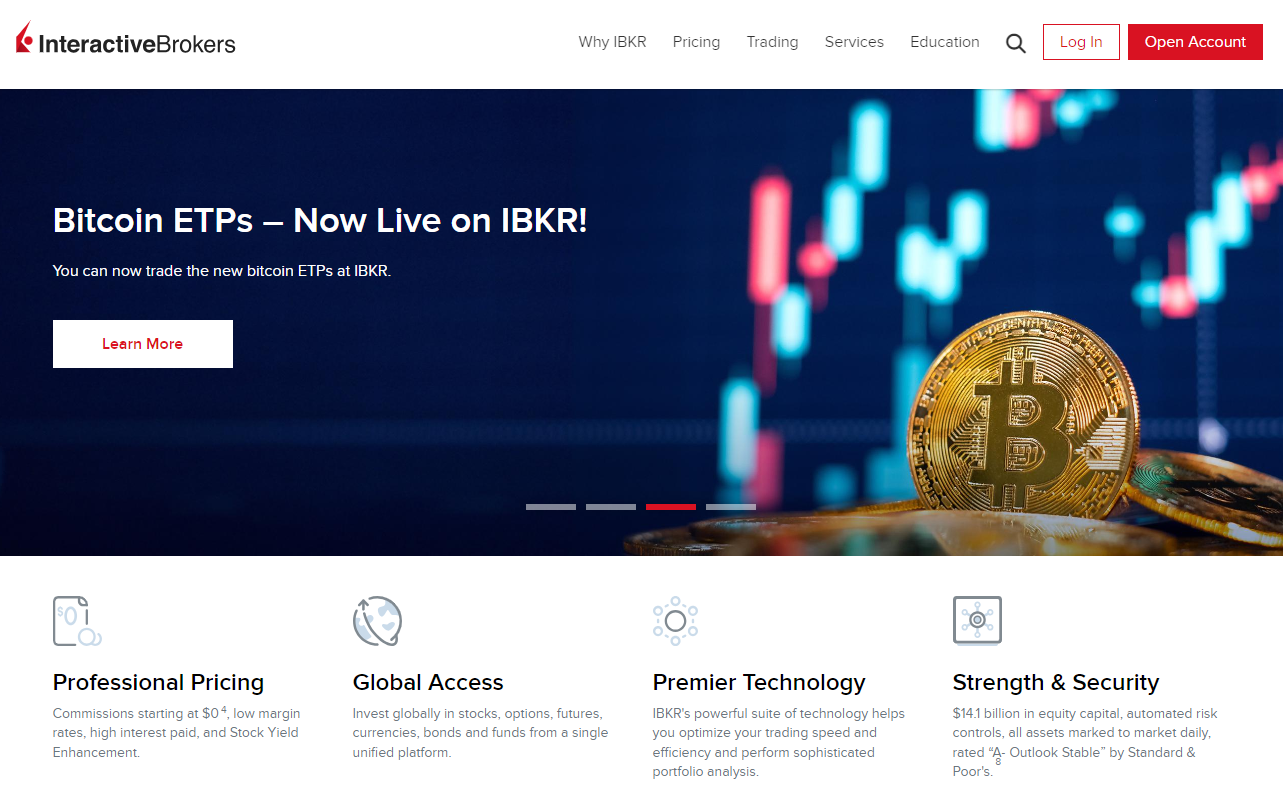
The Commodity Futures Trading Commission (CFTC)
The primary financial regulatory bodies in the United States consist of the Securities and Exchange Commission (SEC) and the Commodity Futures Trading Commission (CFTC).

The CFTC oversees derivative markets, including swaps, options, and futures. Its objectives include fostering a financially sound, open, competitive environment and promoting technological innovation.
Additionally, the CFTC is dedicated to safeguarding market participants from systemic risks and abuse.

The Best CFTC Regulated Forex Broker – Oanda
Oanda is a leading Forex Broker with over 25 years of experience in the financial markets. Oanda offers access to various global CFD instruments, including indices, forex, commodities, metals, and bonds.
| 🔎 Broker | 🥇 Oanda |
| 💰 Min. Deposit | $0 USD |
| 🆓 Demo Account | ✅ Yes |
| ✒️ Regulation | ASIC, BVI, CFTC, FCA, FFAJ, FSC, IIROC, MAS, NFA |
| 💻 MetaTrader 4 | ✅ Yes |
| 🖥️ MetaTrader 5 | None |
| 📌 Mobile Apps | iOS, Android and Windows |
| ➕ Copy Trading | None |
| 🤝 Social Trading | None |
| ☪️ Islamic Account | None |
| 🚀 Open an Account | 👉 Click Here |
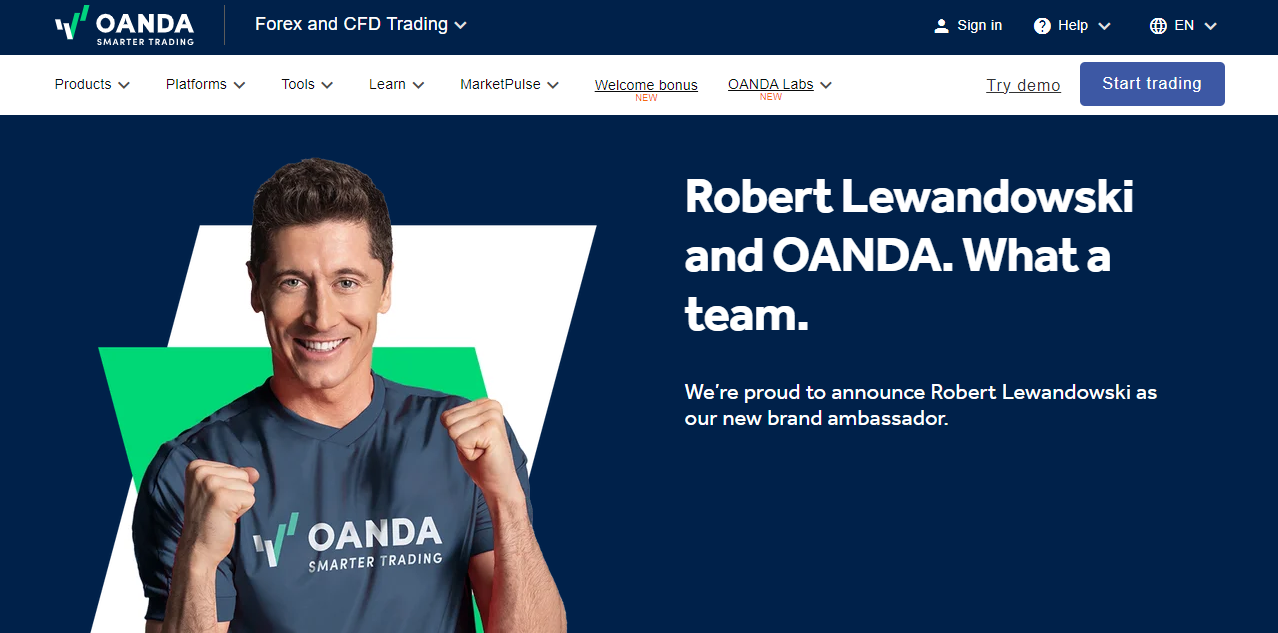
The Financial Conduct Authority (FCA)
Regulating financial services firms and markets in the United Kingdom is a crucial responsibility of the Financial Conduct Authority (FCA). The FCA ensures that traders are protected, market integrity is maintained, and competition thrives for better results.

To achieve this goal, its well-designed regulatory framework guarantees that companies operate ethically with the utmost standards while safeguarding customers’ interests and maintaining soundness within the financial system.

The Best FCA Regulated Forex Broker – HF Markets
HF Markets or HFM, previously known as HotForex, is a well-established forex and commodities broker that offers access to award-winning trading services.
| 🔎 Broker | 🥇 HFM |
| 📈 Established Year | 2010 |
| 📉 Regulation and Licenses | FSCA, CySEC, DFSA, FSA, FCA, FSC, CMA |
| 5️⃣ Ease of Use Rating | 5/5 |
| 🎁 Bonuses | Yes, deposit bonuses, top-up bonuses, giveaways, affiliate promotions, trader awards, loyalty programs, demo contests, merchandise |
| ⏰ Support Hours | 24/5 |
| 🖱️ Trading Platforms | MT4, MT5, HFM Trading App |
| 📊 Account Types | CENT, ZERO, PRO, PREMIUM TOP-UP BONUS |
| 🪙 Base Currencies | USD, EUR, NGN, JPY, ZAR |
| 📌 Spreads | From 0.0 pips EUR/USD (Zero Account) |
| 📍 Leverage | 1:2000 |
| 💴 Currency Pairs | ✅ Yes, 53+ |
| 💵 Minimum Deposit | $0 |
| 💶 Inactivity Fee | ✅ Yes, $5 after 6 months |
| 🖥️ Website Languages | 27+ Languages |
| 💷 Fees and Commissions | Spreads from 0.0 pips, commissions from $6 per round |
| 🤝 Affiliate Program | ✅Yes |
| ❌ Banned Countries | The United States, Canada, Sudan, North Korea, and Syria |
| ▶️ Scalping | ✅Yes |
| ⏩ Hedging | ✅Yes |
| 📐 Trading Instruments | Forex, Precious Metals, Energies, Indices, Shares, Commodities, Crypto CFDs, Bonds, ETFs |
| 🚀 Open an Account | 👉 Click Here |
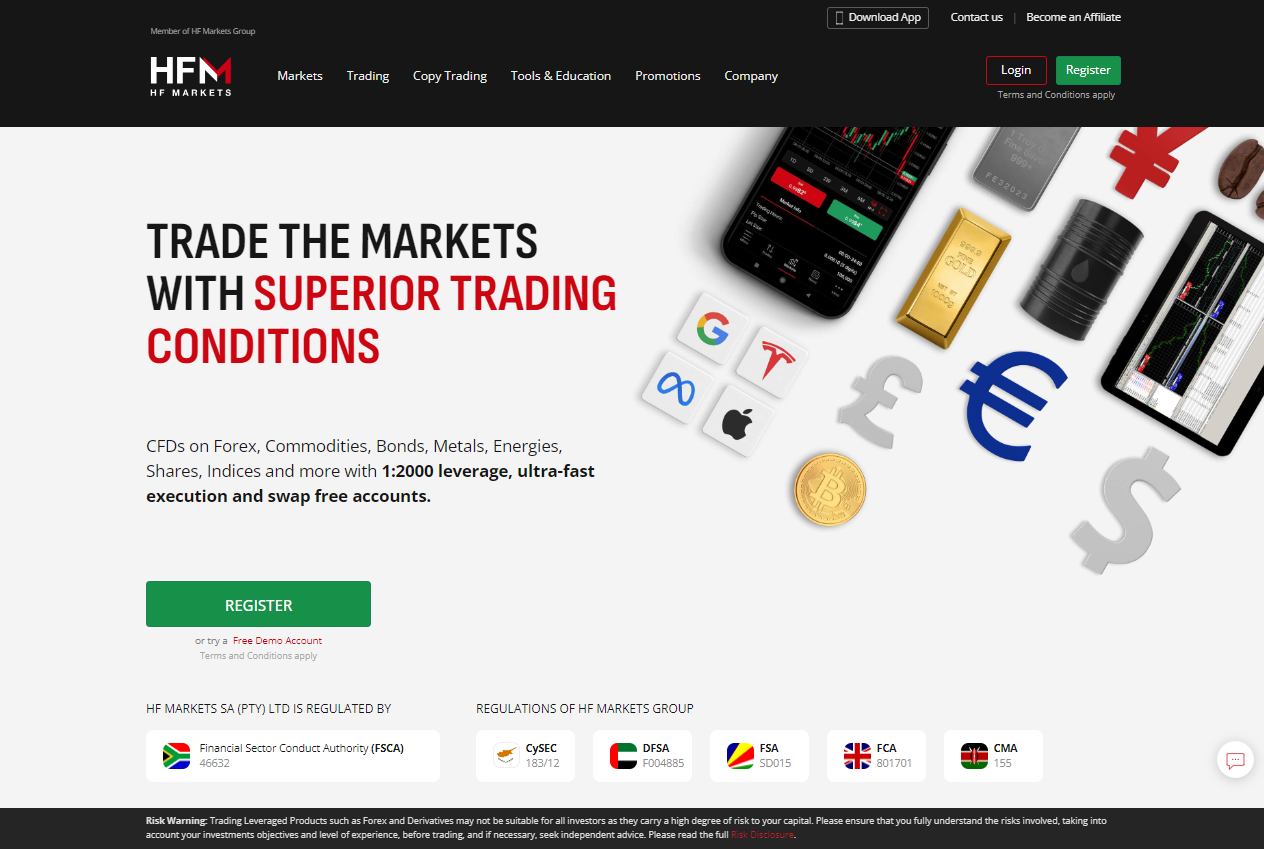
The European Securities and Markets Authority (ESMA)
Enhancing investor protection and promoting stable financial markets are the primary responsibilities of the European Securities and Markets Authority (ESMA), a prominent regulatory body operating within the European Union.

ESMA accomplishes its goals by formulating uniform market rules for EU finance and directly supervising select financial institutions.
It also evaluates risks to investors, markets, and overall fiscal stability while ensuring greater safety and transparency throughout Europe’s economic sector.

The Best ESMA Regulated Forex Broker – FXTM
FXTM is a popular broker choice amongst both Novis and professional traders. Traders will be able to access hundreds of instruments across FX, indices, commodities, and stocks.
| 🔎 Broker | 🥇 FXTM |
| 📈 Established Year | 2011 |
| 📉 Regulation and Licenses | CySEC, FSCA, FCA, CMA, FSC Mauritius |
| 📊 Ease of Use Rating | 5/5 |
| 🎁 Bonuses | Referral bonus |
| ⏰ Support Hours | 24/5 |
| 🖱️ Trading Platforms | MetaTrader 4, MetaTrader 5, FXTM Trader |
| 📌 Account Types | Micro, Advantage, Advantage Plus |
| 📍 Base Currencies | USD, EUR, GBP, NGN |
| 💹 Spreads | 0.0 pips |
| 💱 Leverage | 1:2000 |
| 🪙 Currency Pairs | 60; major, minor, exotic pairs |
| 💴 Minimum Deposit | 10 USD |
| 💵 Inactivity Fee | $5 after 6 months of inactivity |
| 📈 Website Languages | English, Arabic, Chinese (Simplified), Chinese (Traditional), Czech, French, Hindi, Indonesian, Polish, Spanish, Italian, Korean, Malay, Russian, Thai, Vietnamese, Persian, Urdu |
| 📉 Fees and Commissions | Spreads from 0.0 pips, commissions between $0.40 and $2, depending on the trading volume |
| 🤝 Affiliate Program | ✅Yes |
| ❌ Banned Countries | The United States, Mauritius, Japan, Canada, Haiti, Suriname, the Democratic Republic of Korea, Puerto Rico, Brazil, the Occupied Area of Cyprus, Hong Kong |
| 🅰️ Scalping | ✅Yes |
| 🅱️ Hedging | ✅Yes |
| 📐 Trading Instruments | Forex, Forex Indices, Spot Metals, CFD Kenya Stocks, Kenya Stocks, CFD US Stocks, US Stocks, Hong Kong Stocks, CFD EU Stocks, Spot Commodities, Spot Indices, Stock Baskets, Crypto CFDs |
| 🚀 Open an Account | 👉 Click Here |

The Australian Securities and Investments Commission (ASIC)
ASIC is Australia’s merged regulator of corporate, financial services, markets, and consumer credit. It strives to enhance investor and trader trust by providing transparent and equitable market conditions while protecting against monetary misconduct.

Through enforcing laws governing companies’ conduct within the financial sector, ASIC plays a vital role in sustaining the Australian economy’s health and stability.

The Best ASIC Regulated Forex Broker – FBS
FBS is a popular broker choice amongst traders starting in the Forex markets. Traders will be able to securely deposit and withdrawal funds in 200+ ways with the added security of segregated accounts.
| 🔎 Broker | 🥇 FBS |
| 📈 Established Year | 2009 |
| 📉 Regulation and Licenses | IFSC, CySEC, ASIC, FSCA |
| 5️⃣ Ease of Use Rating | 4/5 |
| 🎁 Bonuses | None |
| ⏰ Support Hours | 24/7 |
| 📊 Trading Platforms | MetaTrader 4, MetaTrader 5, FBS Trader |
| 🖱️ Account Types | Retail, Demo, Islamic |
| 💴 Base Currencies | USD, EUR |
| 📌 Spreads | 0.7 pips |
| 📍 Leverage | 1:3000 |
| 💵 Currency Pairs | 71 |
| 💶 Minimum Deposit | 5 USD |
| 💷 Inactivity Fee | None |
| 🥰 Website Languages | English, German, Spanish, French, Italian, Portuguese, South African, Malay, Vietnamese, Turkish, Korean, and others |
| 💳 Fees and Commissions | Spreads from 0.7 pips, commission-free |
| 🤝 Affiliate Program | ✅Yes |
| ❌ Banned Countries | Japan, United States, Canada, United Kingdom, Myanmar, Brazil, Israel, the Islamic Republic of Iran |
| ⏩ Scalping | ✅Yes |
| ▶️ Hedging | ✅Yes |
| 📐 Trading Instruments | Forex, Precious Metals, Indices, Energies, Stocks, Crypto CFDs |
| 🚀 Open an Account | 👉 Click Here |
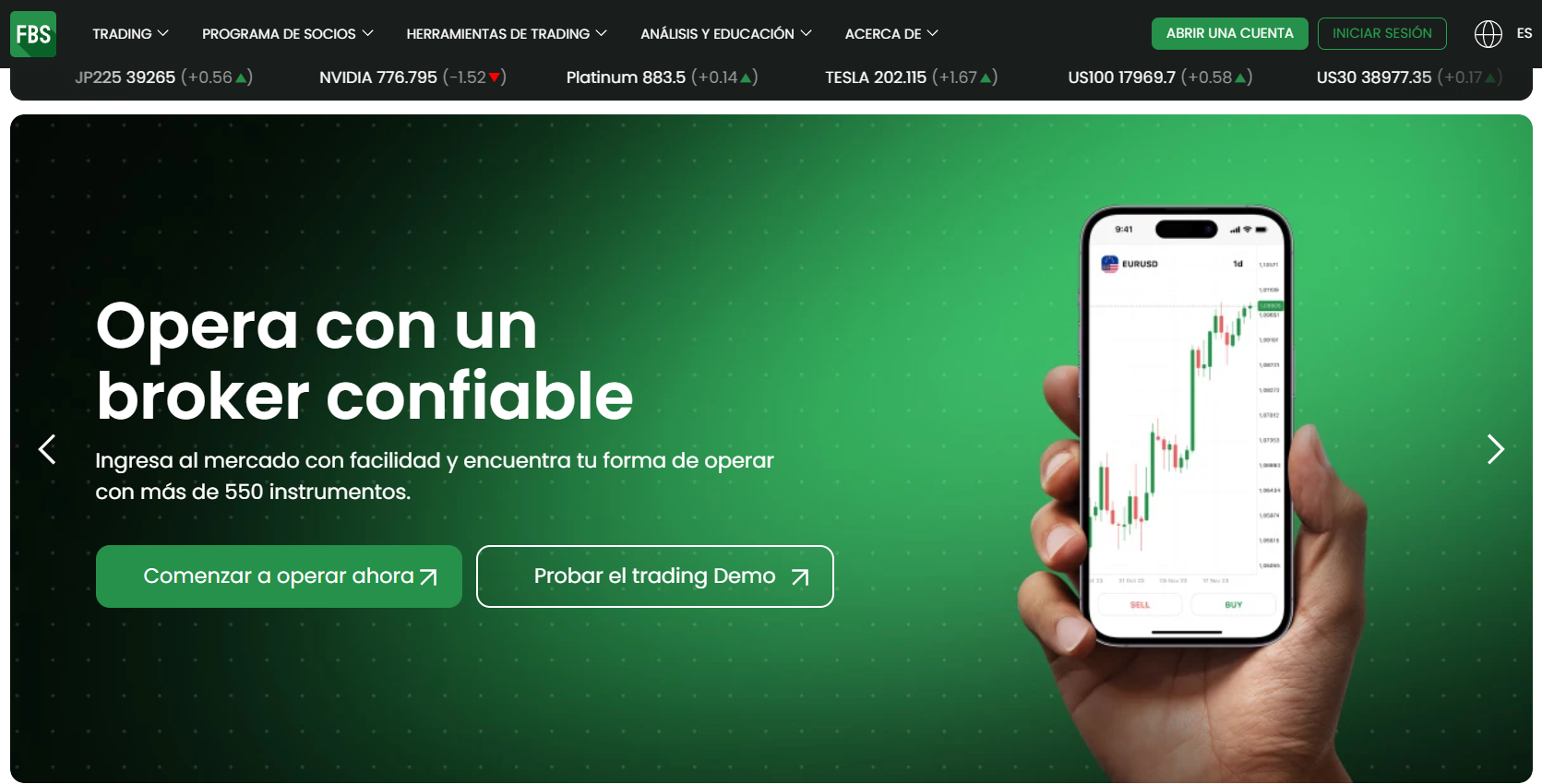
Financial Services Agency (FSA)
Japan’s Financial Services Agency (FSA) is tasked with regulating and supervising the banking, securities exchange, and insurance industries to maintain stability in the country’s financial system.

Its primary focus is on safeguarding depositors, insured parties, and security investors, which promotes a healthy economy overall. Furthermore, its objectives include reinforcing trustworthiness within the nation’s economic sector while improving public awareness about financial matters.

The Best FSA Regulated Forex Broker – Exness
Exness is a leading broker in the Forex field, best known for its netter than market conditions. Exness caters to 700’000+ active traders and offers 24/7 customer support.
| 🔎 Broker | Exness |
| 📉 Regulation | FSA, CBCS, FSC, FSC BVI, FSCA, CySEC, FCA, CMA |
| 📌 Account Types | Standard, Standard Cent, Raw Spread, Zero, Pro, Demo, Islamic |
| 🖱️ Trading Platforms | MetaTrader 4, MetaTrader 5, Exness Terminal, Exness App |
| 🪙 Commodities | Yes |
| ⚙️ Instruments | Forex, Commodities, Stocks, Indices, Cryptocurrencies |
| 💵 Minimum Deposit | 10 USD |
| 👉 Open an Account | 👉 Click Here |
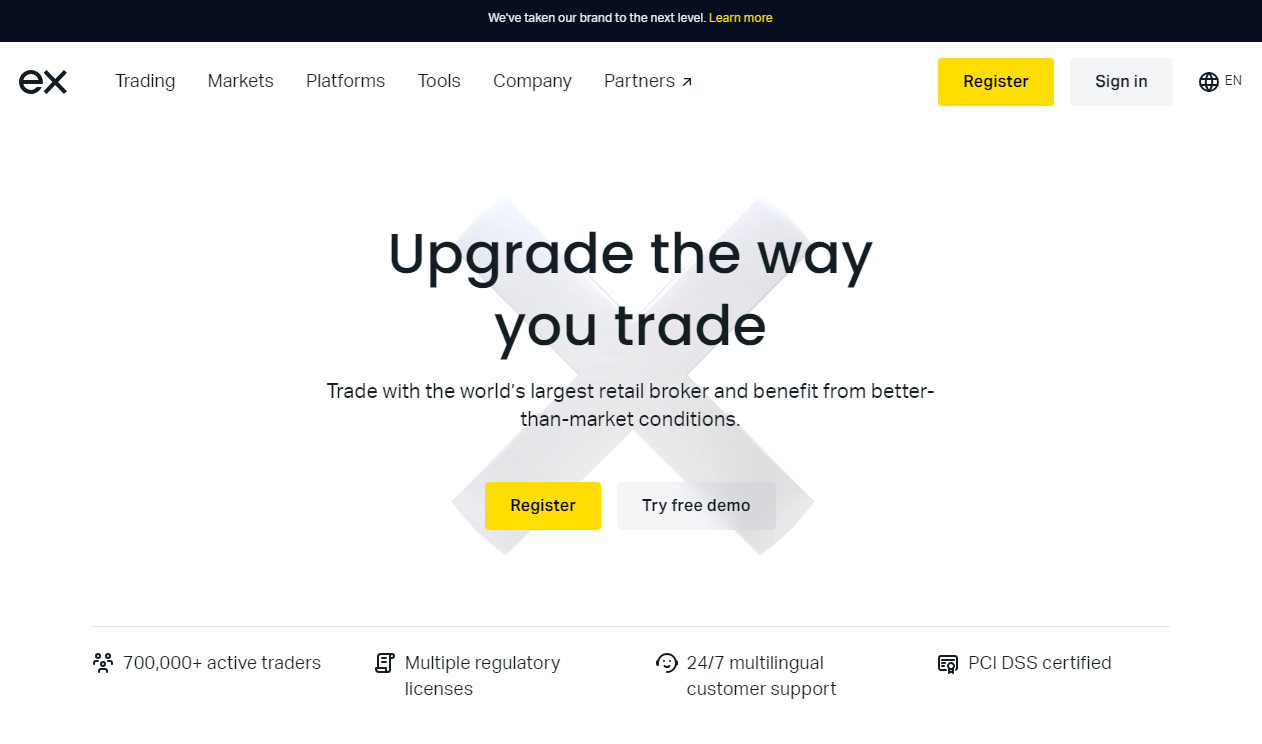
Why is Regulation Important in the Financial Markets?
Financial market integrity and investor trust are fundamentally reliant on regulation. In the complex landscape of global finance, regulatory bodies such as the FCA in the UK and SEC in the US play a pivotal role.
They enforce legal requirements and promote transparency, ensuring fair competition among market participants.
Through the regulation of trading activities, particularly in forex markets, risks associated with high leverage or volatile price changes can be mitigated, thus safeguarding investors from potential fraudulent practices perpetrated by brokers.
The enforcement of stringent regulations has contributed to cultivating a well-informed community of traders capable of confidently navigating intricate financial systems.
This framework establishes an environment conducive to stability and innovation, facilitating long-term expansion across all financial sectors. It underscores the critical importance of robust regulatory frameworks in fostering dependable economic growth.

The Key Objectives of Financial and Forex Regulators
The fundamental objectives of financial and forex regulators revolve around ensuring market transparency, protecting investor welfare, and maintaining fiscal stability.
These regulatory bodies implement stringent measures to prevent financial fraud, market manipulation, and unethical conduct that could erode investor confidence and hinder economic prosperity.
By setting forth guidelines for fair and efficient market operations, they aim to foster a competitive environment where risks are minimized and innovation flourishes.
Furthermore, these institutions exert substantial influence on emergency response strategies, intervening proactively to mitigate systemic risks that could lead to disruptions or crises within the broader economy.

Regulatory Frameworks and Standards
The infrastructure of the global financial system is shaped by regulatory frameworks and standards that seek to enhance transparency, stability, efficiency, and consumer protection and minimize systemic risks.
Furthermore, they prescribe rules and guidelines for operations in financial institutions, ensuring a growth-oriented yet shock-resistant economy.
Basel III Framework
The Basel III Framework, established by the Basel Committee on Banking Supervision, is designed to comprehensively enhance bank regulation, supervision, and risk management.
Triggered by the global financial crisis of 2007-2008, which highlighted the necessity for stronger financial regulations, this framework introduces new measures to reinforce banks against economic stress.
Key components encompass increased capital requirements, a leverage limit to prevent excessive borrowing, and short-term liquidity provisions to sustain stability during uncertain times.
Ultimately, implementing Basel III strengthens individual banking systems and contributes positively to overall system stability, underscoring its significant value proposition.

MiFID II in the European Union
MiFID II, a legislative framework implemented by the European Union in January 2018, aims to govern financial markets and enhance investor protections. It significantly extends its predecessor’s reach and covers various financial instruments and trading venues.
The primary objective is to augment transparency in the EU’s financial markets while providing uniform regulatory discourses for particular sectors.
In addition, MiFID II enforces more rigorous product governance norms, heightened trading visibility, better reporting, and disclosure prerequisites that together ensure the efficiency, equity, and integrity of the concerned marketplaces.

Dodd-Frank Act in the United States
In 2010, Congress enacted the Dodd-Frank Wall Street Reform and Consumer Protection Act as a comprehensive law responding to the financial crisis. Its main objective was to diminish systemic risk while shielding traders from exploitative practices in financial services. Consequently, sweeping modifications were made to US monetary regulation under its provisions.
As a result of the enactment of its provisions, multiple government agencies were created. For instance, the Consumer Financial Protection Bureau (CFPB) and the Financial Stability Oversight Council (FSOC) oversee regulatory conformity.
The Dodd-Frank Act comprises noteworthy components, including heightened regulations on financial institutions and products, an emphasis on transparency in operations, and strict demands concerning capital reserves and liquidity.
This act symbolizes an important achievement in US monetary regulation by actively attempting to prevent prospective economic crises instead of solely reacting after they occur.

The Role that Regulators Play in Protecting Investors
Regulators play a critical role in safeguarding investors’ welfare, maintaining the credibility of financial markets, and fostering an environment built on trust and reliability.
Their responsibilities extend beyond mere supervision; they also actively monitor market movements, enforce regulatory measures, and educate investors to empower them in making informed decisions.
Regulatory efforts aim to prevent fraudulent schemes and mitigate risks that could impact entire systems while ensuring transparency – essential elements for global economic activities within monetary domains.
Monitoring and Enforcement Actions
Regulatory efforts to safeguard investors heavily rely on monitoring and enforcement actions. Advanced surveillance systems assist regulators in closely observing trading activities and financial transactions.
They diligently search for anomalies indicating potential market manipulation, insider trading, or fraudulent behavior.
Regulatory bodies can investigate, fine, and pursue legal action against individuals or institutions who contravene financial regulations. These enforcement measures are preventive measures against unlawful actions while maintaining market integrity.
By holding accountable all participants in markets, regulators ensure that fair and structured operations occur within the finance industry, which safeguards investors from any potential losses caused by illegal activities.
Investor Education and Awareness Programs
Regulators employ investor education and awareness initiatives as a pivotal strategy to protect investors.
These programs aim to provide individuals with the fundamental skills and knowledge required to understand the advantages and disadvantages associated with a wide range of financial services and investment options offered by firms.
Through these measures, regulators seek to empower investors to make well-informed decisions about their investments by offering resources aimed at fostering comprehension in areas such as the following:
- ✅ Reading financial statements
- ✅ Recognizing fraudulent activities
- ✅ Clarifying the range of products available in the market
- ✅ Educating them on methods to safeguard themselves while exercising their rights as legally recognized entities within this ecosystem
Such programs are critical for increasing financial literacy, reducing investors’ susceptibility to scams and misleading information, and improving their ability to navigate the complexities of financial markets.
Regulators use workshops, online courses, publications, and interactive tools to help create a more informed investor base less vulnerable to exploitation and better prepared to contribute to a stable and prosperous financial ecosystem.

Challenges that Financial and Forex Regulators Face
As the financial markets under their purview undergo significant changes, regulators tasked with overseeing finance and forex are confronting various novel challenges.
These issues range from multifaceted to complexly interrelated ones that require continual regulation, innovation, and adaptation efforts.
Among these pressing concerns is grappling with technological advancements, mitigating cross-border financial consequences due to globalization effects, and regulating emerging instruments such as cryptocurrency.
Furthermore, there is a need for a dynamic regulatory framework proficient at guaranteeing global economic stability while maintaining integrity standards.
Adapting to Technological Advancements
The fast-paced evolution of technology presents a notable obstacle for financial and forex regulators. The advent of fintech breakthroughs like algorithmic trading, digital banking platforms, and robo-advisors offer various benefits such as efficiency enhancement and accessibility expansion.
Nonetheless, these innovations introduce fresh dangers that jeopardize system security through cyber-attacks or data leaks, all the while posing risks to systemic failure during operation instability.
Therefore, it falls upon regulators to remain updated on technological advancements while comprehending its market dynamics influence alongside maintaining stability within finance parameters.
This entails technical proficiency and developing new regulatory models flexible enough to incorporate shifting landscapes without impeding innovation progression.
Globalization and Cross-border Issues
The expansion of financial markets worldwide due to globalization has fostered investment opportunities and enhanced liquidity. However, persistent regulatory hurdles arise as entities across different countries operate under diverse legal frameworks, impeding effective jurisdictional oversight.
This underscores the crucial need for international regulatory cooperation, particularly in addressing issues like “regulatory arbitrage” and challenges coordinating enforcement efforts across different judicial systems.
To surmount these obstacles, it is essential to establish uniform standards and practices. This approach promotes fairness in governance and mitigates the risk of adverse economic impacts stemming from inadequate monetary practices, whether domestically or internationally.
Cryptocurrency and Emerging Financial Instruments
Financial regulators have encountered unprecedented challenges with the emergence of cryptocurrencies and other new financial instruments.
The decentralized nature of these assets, anonymity in transactions, and lack of central issuing authority make monitoring compliance with anti-money laundering (AML) rules difficult, complicating consumer protection efforts.
Additionally, high volatility raises concerns about market stability and investor safety. A balanced approach is required to address these issues simultaneously, promoting innovation while safeguarding investors and the financial system.
This necessitates the development of an effective regulatory framework that includes a thorough understanding of the technological foundation behind these instruments, along with the creation and implementation of tools used in regulatory procedures.

Case Studies and Regulation in Action
Financial regulation is characterized by numerous case studies illustrating regulatory interventions that are occasionally successful and, at times, controversial. These examples underscore regulators’ vital role in maintaining market integrity and protecting investors.
They also unveil the complex dynamics and unintended consequences of regulatory decisions.
By examining specific cases, we gain a deeper understanding of the effectiveness of various regulatory approaches and the challenges those responsible for pursuing objectives in this field face.
Successful Interventions by Regulators
The response to the 2008 financial crisis serves as a prime instance of successful regulatory intervention. In its aftermath, governing bodies across the globe carried out numerous reforms intending to fortify the financial structure and avoid any potential destructive event in the future.
One of these changes entailed launching Basel III guidelines, causing a major hike in banks’ capital and liquidity requisites.
The ultimate goal was to fortify the banking industry against potential economic upheavals, and it has been evidenced that this measure achieved its objective successfully.
Financial institutions currently boast higher levels of capitalization and liquid assets, leading to a sturdy and dependable monetary system.
The enactment of the Sarbanes-Oxley Act (SOX) in response to infamous corporate and accounting scandals like Enron and WorldCom is another testament to effective regulation.
SOX aimed to bolster financial disclosures, enhance corporate governance practices and curb fraudulent activities in corporations’ finance departments.
By enhancing auditing and financial regulations for public firms while enforcing harsh sanctions on nonconformity, the act notably bolstered investor trust in corporate transparency and precise representations of fiscal statements.
In addition, these outcomes signify how skillfully crafted regulatory practices can present advantages to stakeholders.
Controversial Decisions and Their Impact
While some regulatory decisions have received widespread support, some remain highly controversial.
The enforcement of the Volcker Rule is a prime example; despite being included in the Dodd-Frank Act to prevent American banks from engaging in speculative investments detrimental to their clients, it has garnered significant opposition.
While the main aim of the Volcker Rule was to minimize bank risks and safeguard stability in the financial system, opponents argue that its implementation has curtailed banks’ ability to hedge risks adequately.
This, in turn, caused a decrease in liquidity within specific markets. The dispute surrounding this rule underscores how regulators encounter difficulties balancing risk reduction with potential impacts on economic growth and market dynamics.
The European Union’s decision to impose negative interest rates sparked controversy as it was believed that the move would boost economic growth by incentivizing investment and lending.
Although some contend that this measure has been advantageous for the economy, some assert that it has compressed bank profits, posed a potential threat to financial stability, and damaged savings accounts and pension funds.
The enduring influence of adverse interest rates remains subject to intense dispute, underscoring policy interventions’ intricate dilemmas and unanticipated repercussions.

The Critical Role of Regulation in Financial Stability
The key to preserving financial stability is regulation, which is fundamental in linking the intricate network of international economic systems.
By enforcing responsible behavior among financial institutions and aligning them with broader economic objectives, effective regulation safeguards against imbalances that result in crises.
Regulators foster durable infrastructure by mandating rigorous standards for capital adequacy, risk control mechanisms, and transparency protocols.
Regulations not only safeguard the interests of individual investors but also maintain the overall integrity of financial markets. Additionally, regulations cultivate trust among participants, which is crucial for market efficiency.
Regulatory bodies are responsible for averting fraud, reducing systemic risks, and ensuring financial transactions abide by established laws to enable long-term economic growth through monitoring practices.
In addition, regulation acts as a foundation for building reliable and secure financial environments, thus enabling efficient resource allocation alongside spurring overall economic advancement.

In Conclusion
In our investigation of financial and forex regulators, we discovered that these organizations are critical to the integrity and stability of global financial markets.
Their efforts to enforce regulatory standards, protect investors, and ensure fair play are admirable, and they have undoubtedly helped to create a more secure investment environment. Regulators, on the other hand, face numerous challenges and drawbacks.
Furthermore, our findings show that significant challenges are adapting to rapid technological change, navigating the complexities of globalized financial markets, and managing the emerging domain of cryptocurrencies and digital assets.
In addition, while regulation is necessary for market stability, excessively stringent or poorly designed regulations can stifle innovation, limit market efficiency, and impose significant costs on financial institutions and, by extension, traders.
Balancing these competing demands—protecting the market and its participants while fostering a culture of growth and innovation—is a delicate task.
Our research reveals a landscape marked by successes in improving financial security and areas that require continuous improvement and adaptation. Overall, the process of financial regulation is ongoing, reflecting the dynamic nature of the markets it seeks to protect.
Addendum/Disclosure: No matter how diligently we strive to maintain accuracy, the forex market is volatile and may change anytime, even if the information supplied is correct when going live.
Investor Warning: Foreign currency trading on margin is associated with an elevated risk and may not be appropriate for all investors. Before engaging in foreign currency or Contract for Difference (CFD) trading, you must evaluate your investing goals, expertise, appetite for risk, and willingness to be exposed to risk. In addition, you should not start investing capital you cannot afford to lose because you could lose part of your original investment.
Frequently Asked Questions
What are financial and forex regulators?
Financial regulators regulate banks, investment firms, and other financial institutions to maintain the financial system’s stability and fairness. Forex regulators specialize in the foreign currency industry, trying to safeguard traders and prohibit fraudulent operations.
Can I trade forex without a regulated broker?
While theoretically possible, forex trading using unregulated firms is very dangerous. You have little to no protection against deceptive or unfair practices.
What are the benefits of trading with a regulated forex broker?
Regulated brokers provide improved asset security, protection against unscrupulous tactics, and potential legal remedies in disputes. This gives traders more peace of mind.
Why are financial and forex regulators important?
These regulators are critical because they develop regulations to promote market integrity, protect investors from fraud, and provide a fair playing field for all players. Their monitoring serves to reduce risks and provide a safer trading environment.
How do I know if a forex broker is regulated?
Regulated forex brokers often provide regulatory information on their websites. You may double-check this information by going to the official website of the appropriate regulatory authority.
What should I look for when choosing a regulated forex broker?
Always ensure the broker is licensed and regulated by a respectable financial body. Check the regulator’s website for the broker’s status and previous disciplinary proceedings.
Who are some of the biggest financial and forex regulators?
Some of the largest and most prominent regulators are the FCA in the United Kingdom, ASIC in Australia, CFTC and NFA in the United States, CySEC in Europe, and FSA in Japan.
